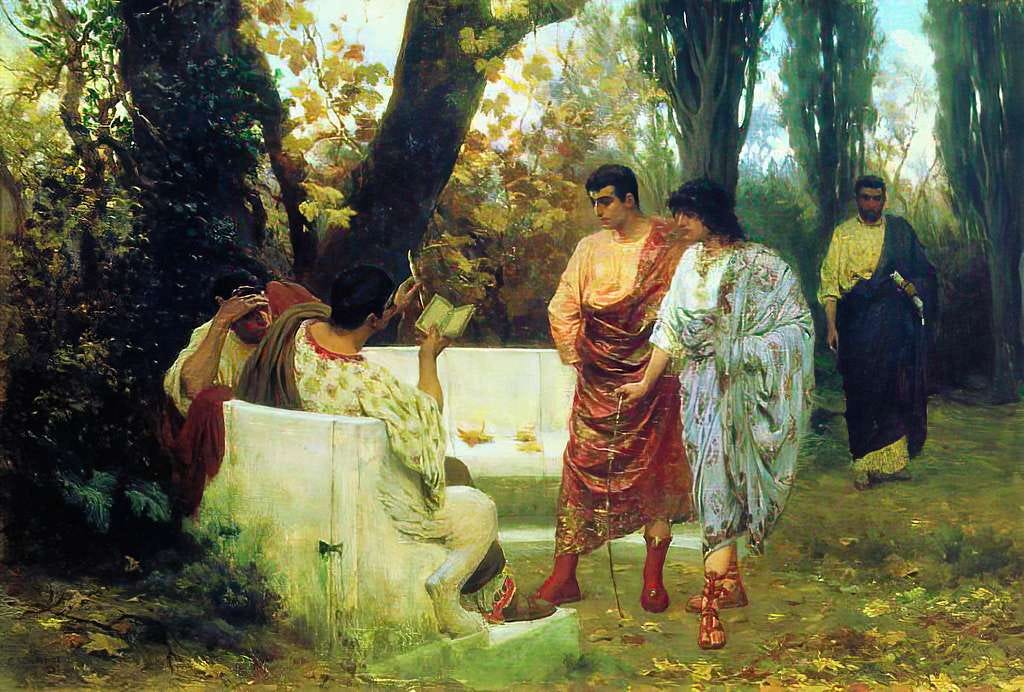Highbrow Advice for Life: Free Time Done Right
What should we moderns take from from both Catullus’s warnings against leisure and his embrace of it?
otium, Catulle, tibi molestum est:
otio exsultas nimiumque gestis:
otium et reges prius et beatas
perdidit urbes.
(Catullus, Poems,51)
Having nothing to do, the poet Catullus said, was bad for the health. Free time made you over-stimulated and dysregulated. Formless leisure, Catullus would tell you, destroyed not only entire careers but whole civilizations.
What gorgeous corporate patter; what sparkling ancient capitalism. Rise and grind, friends, another day is upon us. The Romans say so.
Catullus, of course, is being more than a bit hypocritical. He loved his leisure, which he dedicated to exchanging naughty poems with his friends, translating poetry from the Greek, making moon eyes at married women, and in the fullness of time becoming a household name among those fortunate enough to study Latin. It was in the wake of a sunny afternoon spent talking poetry with a close friend that he was inspired not only to translate Sappho but indeed to improve her work with the above stanza on the dangers of otium.
What are we moderns to take from from both Catullus’s warnings against leisure and his embrace of it? Modern productivity experts will tell you to focus on what matters most and do that first, as if feeding children, getting promoted, and getting eight hours of sleep can all be ranked in some grand matrix of mattering. Wellness experts might suggest yoga, or mindfulness, or exercise. Historians and activists would point out that systemic problems cannot be solved by the individual, and they’d be right, too — except that we all need to rest now, not after the revolution.
Genuine free time in Rome was the purview of the elite, a class of people who had country retreats where they could leave behind their public obligations and pursue what they loved instead: history, pure science, reading poetry, the raising of dogs and drinking of wine. Things that productivity experts today would call high-quality leisure. Things that left you rejuvenated, fresh, buzzing with ideas.
Laura Vanderkam, a productivity author who focuses on how time management can lead to a happier, more restful life, has arrived at a similar strategy. She suggests that the kinds of high-quality leisure that make us feel better are effortful. And they are leisured not because you get to woolgather but because you get to feel the bone deep satisfaction of having done something. Leisure, in other words, might not be leisurely.
Full disclosure: Some of the ideas the Roman elite buzzed with were downright awful — imperialism, war, slavery, misogyny, genocide, corruption. Which just goes to show Catullus was right: leisure done wrong could and did destroy whole civilizations. Best, then, to get it right.
So here is some high-brow advice for life, as I imagine delivered by a modern-day Catullus: Write poetry. Fall in love, or just imagine you did. Spend sun-drenched afternoons geeking out with beloved friends, and then tell absolutely everyone about it. For preference, translate Greek with them. Better still, translate Latin. Play with theoretical physics. Write a play. Squeeze out the full range of opportunities afforded you by language, whether verbal, numeric, or visual. Put that fancy UT education to good use. Eat well. Rest. Devote yourself to community, or a good cause. Maybe run a 5K. Put some effort into life and living. Practice wild compassion with yourself when that effort is just too much to make.
And then, when you’ve worn the edges of the day’s excessive living, hug your loved ones, lie down in your bed, and do absolutely nothing. And by absolutely nothing, I of course mean read Catullus, who will give you all the tips and tricks you need for living.
Ayelet Lushkov is an associate professor of classics at UT Austin and the author of, among other books, Magistracy and the Historiography of the Roman Republic: Politics in Prose and You Win or You Die: The Ancient World of Game of Thrones.





